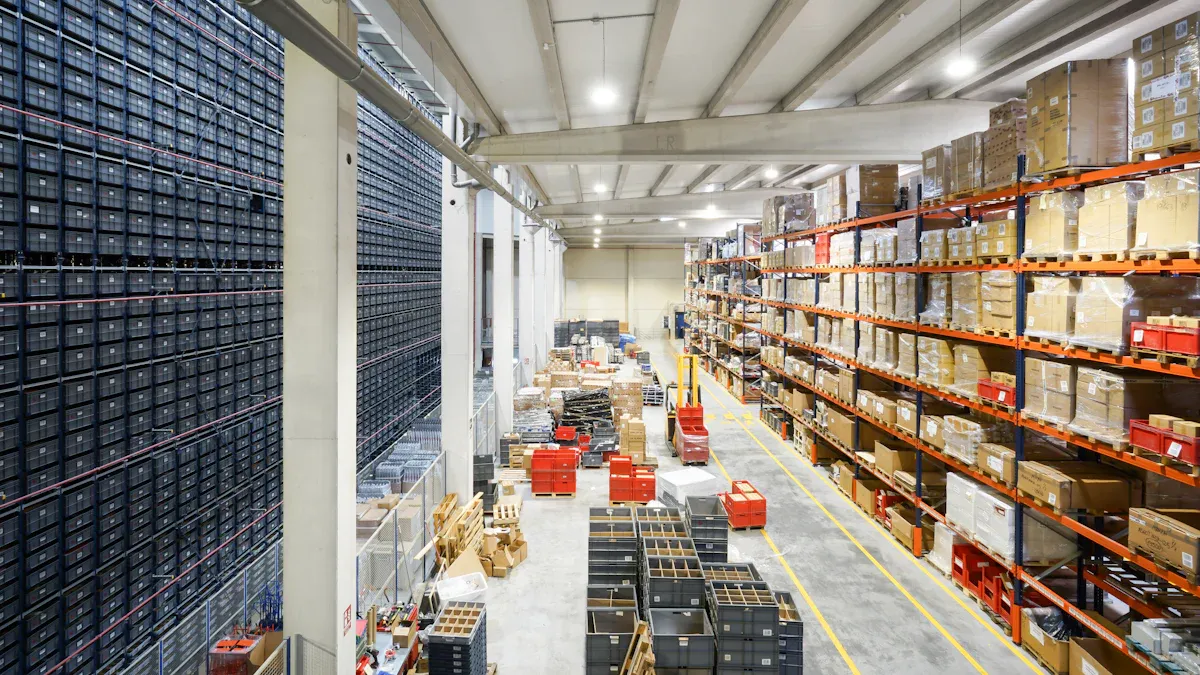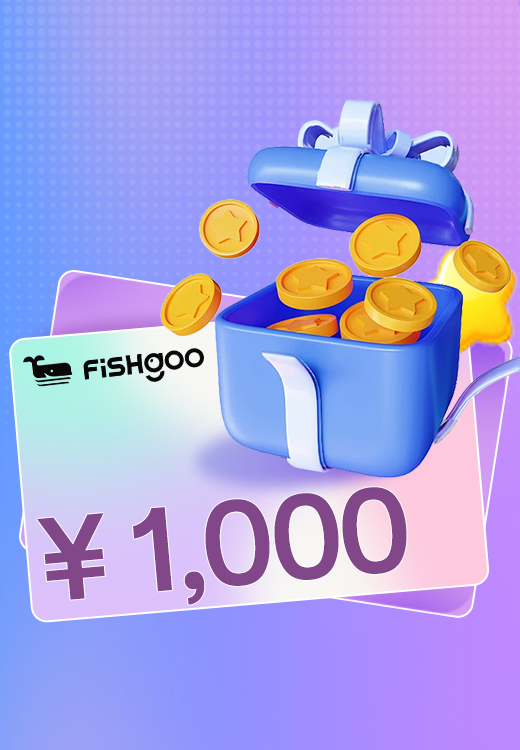Wholesale sourcing strategies in China's B2B market for resellers

Wholesale sourcing from China lets you pick from many products and get good prices. This helps your business grow faster. If you learn sourcing strategies, you make more money and lower your risks. Many resellers have problems like:
Trouble paying, especially if you need RMB or Alipay
Hard to talk to suppliers, which leads to confusion
Problems with deals and late shipments
You can stop common problems like extra costs, middlemen, or customs trouble by checking suppliers, looking at their papers, and planning for quality checks. If you do things the right way, you feel sure and help your business do well.
Key Takeaways
Sourcing from China lets you find many products for less money. This can help your business grow quickly.
Always look at supplier reviews and ratings before you buy. This helps you avoid scams and makes sure products are good.
Ask for product samples before you order a lot. This helps you check quality and see if it fits your needs.
Build good relationships with suppliers by talking clearly and showing respect for their culture. This can help you get better deals.
Use safe ways to pay and learn about customs rules. This helps you have smooth deals and avoid delays.
Why Source from China
China’s B2B Advantages
When you buy wholesale from China, you join a big group of factories and suppliers. China is special because it gives resellers many good things. You pay less for making products because labor and materials are cheaper. There are fewer rules, so you can work faster and avoid waiting. Chinese wholesalers make many kinds of goods quickly, so you always have choices.
Tip: Going to trade shows in China lets you meet suppliers in person and look at products closely. This helps you trust them and check quality.
China is the top country for making lots of products. Factories can take big orders and change products for you at low prices. You also get help from good roads, ports, and skilled workers. Even though wages are going up, China still gives smart ways to handle hard supply chains. Sourcing from China means you get better quality checks and stronger materials. You receive products you can trust and get them fast.
China’s factories cover almost every kind of business.
You can get custom products and quick production.
The country’s roads and ports help with fast shipping.
Trade shows in China help you find new suppliers and trends.
Key Product Categories
You can buy many wholesale products from China. Some types are more popular with buyers from other countries. These are:
Consumer electronics like headphones, smartwatches, and chargers.
Home goods and appliances such as kitchen tools and cleaning devices.
Fashion and apparel, including shoes, bags, and clothing.
Health and beauty products like skincare, makeup, and wellness items.
Toys and games for children and adults.
Office and school supplies, from stationery to backpacks.
If you pick these types, you get items that many people want. Buying wholesale from Chinese wholesalers helps you stay ahead. Sourcing from China gives you more choices, good quality, and saves money. You can grow your business by picking the best products and working well with suppliers through B2B channels.
Wholesale Sourcing Platforms
B2B Marketplaces
There are many online marketplaces in China for wholesale products. These websites help you find suppliers and compare prices. You can also check the quality of products. Here are some top B2B platforms in China:
Alibaba Group – This is the biggest wholesale marketplace in China.
Made-in-China.com – It helps with global trade and checks suppliers well.
Global Sources – It lists good suppliers and cares about product quality.
JD.com – People like it for fast delivery and safe buying.
DH-Gate – It mixes social networking with shopping.
eWorldtrade, Pinduoduo, T-mall, Meituan, Xiaohongshu, and Temu – Each one has special features for different businesses.
Tip: Always read supplier reviews and ratings before you buy. This helps you stay away from scams and bad products.
You can see how Alibaba and Made-in-China are different in this table:
Feature | Alibaba.com | Made-in-China.com |
|---|---|---|
Product Variety | Over 40 categories, broad spectrum | 27 categories, focused on industry goods |
Supplier Geography | Global reach, 190+ countries | Suppliers from China or Hong Kong |
Pricing and MOQs | Flexible, for all business sizes | Structured, for specific industries |
Global Sources is special because it finds trusted suppliers and gives extra help to your business.
1688 Procurement Guide
1688 is a well-known website in China for cheap wholesale products. Many resellers use it to get good deals. Here are steps to buy from 1688:
Decide what you need and how much money to spend.
Search for products with words or pictures.
Look at supplier ratings and reviews.
Talk about the minimum order and ask for samples.
Add up all costs, not just the price for each item.
Agree on the contract and payment rules.
Use payment tools like WorldFirst if you do not have Alipay.
Set up shipping with a freight forwarder.
Note: Always ask for samples before you buy a lot. This helps you check if the quality is good.
Direct Wholesale Markets
You can go to wholesale markets in China to see products yourself. You can also meet suppliers face-to-face. Some popular markets are:
Yiwu International Trade City – Famous for small items, bags, shoes, and toys.
Guangzhou Baima Clothing Market – Known for clothes and fashion.
Huaqiang Bei Electronic World – A top place for electronics.
Shuibei International Jewellery Exchange Center – Good for jewelry.
Baoding Baigou Bags & Cases Trading Market – Great for bags and cases.
You can find almost any product in these markets. Going there lets you check quality and build trust with suppliers.
Find Reliable Suppliers
Vetting Suppliers
You need to pick suppliers you can trust in China. Checking suppliers helps you avoid trouble and build good business ties. There are many ways to see if a supplier is honest. Here is a table that shows how you can check suppliers and what to watch out for:
Method | Benefits | Drawbacks |
|---|---|---|
Use Search Engines and China Supplier Directories | You find lots of facts about suppliers, like reviews and history. | It takes time to search. Some info may not be true. |
Research the Supplier’s Background | You learn how long the supplier has worked and their experience. | The website date may not show the real company age. |
Make a Phone Call | You can ask about registration details right away. | Cell numbers may not be safe. Scammers can get many numbers. |
On-Site Visits and Factory Inspections | You see how the supplier works and check product quality. | You must travel, which costs money and time. |
Request Documentation | You get business licenses and proof of registration. | Some suppliers may not want to share these papers. |
Request Samples | You check if products are good and how they are made. | Samples may cost money. If they say no, be careful. |
Collaborate with Third-Party Inspection Services | Experts help you check suppliers and product quality. | You pay more for these services. Pick a good company. |
Legal Agreements and Contracts | You set rules for quality and delivery. | Some suppliers may not follow rules. You need to know how to manage this. |
You should also look at other things when checking suppliers. Check if workers have good skills and fair work rules. Look at the supplier’s main buyers and if people trust them. Make sure products fit your business. See if they can make enough for your orders. Check if their machines work well and are up to date. Look at their network for quality checks. Watch how they control quality during production. See if they follow safety and environmental rules. Check how they store products and manage stock. Make sure they follow laws and care about social rules.
You can do audits and background checks on suppliers. Always ask for business licenses and proof they can make products. Ask for samples and check products at different times. Keep talking with suppliers while they make your order. You can also check their reputation online and in directories. If their info is the same everywhere, it helps you trust them. You can ask for a factory check and see how they react.
Tip: Try a small order first before you buy a lot. This lets you test if the supplier is reliable and if products are good.
Sourcing Agents
Sourcing agents in China help you find good suppliers and make buying easier. They know the market and have many contacts. Sourcing agents check suppliers for you. They see if suppliers meet quality and follow rules. Agents talk between you and factories. They help with prices, shipping, and product checks.
You get help from their local knowledge. Sourcing agents help you avoid problems and save time. They find suppliers that fit your needs and order size. Agents also help check suppliers and keep talks clear. You can use sourcing agents if you cannot visit factories or markets.
Note: Sourcing agents can help with contracts and payment rules. They help you find trusted suppliers and avoid mistakes.
Red Flags
You need to watch for warning signs when buying from Chinese suppliers. Some suppliers may not be honest. Here are some red flags:
Fake bills for products that are missing or not what you ordered.
Saying they have legal issues to change how you pay.
Deals that seem too good. These can mean scams.
Not giving business licenses or papers.
Not wanting to send samples or let you visit.
Different info in supplier directories.
Bad communication or sudden changes in deals.
If you see any of these signs, stop working with the supplier. Good suppliers in China will answer your questions and give clear info. You can keep your business safe by checking everything and using ways to check suppliers.
🚩 Always trust your gut. If something feels wrong, find another supplier.
Sourcing Strategies
Negotiation Tactics
You need good negotiation skills to buy wholesale from China. If you negotiate well, you get lower prices and build trust. Before you start, learn about the market and suppliers. Make a kit with product info and past orders. This helps you get better deals.
Show respect for Chinese culture to build trust. Talk with suppliers often and be friendly.
Use clear words. Check details in English and Chinese. This stops confusion about prices or products.
Let suppliers know you have other choices. This shows you are not desperate and helps you get better deals.
Ask for discounts when you buy more. Suppliers often lower prices for big orders.
Try to build long-term partnerships. Suppliers may give better prices if you buy again.
Tip: Be patient when you talk with suppliers. Do not rush. Give counteroffers to help with deals. Combine orders to buy more and get lower prices.
If you use these strategies, you stay calm and plan ahead. You can get the best prices and avoid mistakes when buying wholesale.
Setting Terms
Clear contract terms protect your business. You must agree on all details before you order. This is important for smart sourcing. Use a contract that covers everything. Write it in both English and Chinese to stop confusion.
Key Term | Description |
|---|---|
Keeps your ideas safe from being shared or used. | |
Translation Accuracy | Makes sure both sides understand the contract. |
Penalties for Breaches | Sets what happens if someone breaks the contract. |
Jurisdictional Clauses | Says which country’s laws will solve problems. |
Non-use and Non-circumvention | Stops suppliers from copying your designs or working with others. |
Set terms for prices, payment times, delivery, and quality checks. Add penalties for late shipments or bad products. Check every detail to avoid surprises and keep your supply chain strong.
Note: Always ask a legal expert who knows China’s laws to check your contract. This keeps you safe from future problems.
Building Partnerships
Long partnerships with suppliers help your business grow. Treat suppliers with respect and learn about their culture. Good relationships mean better prices and easier deals. Look at all the products China offers. This helps you find new chances and follow trends.
Talk clearly and often. Share your needs and listen to suppliers.
Learn about Chinese holidays and business customs. This helps you work together.
Use technology to track orders and share updates. This keeps everyone informed.
Visit suppliers if you can. Meeting face-to-face builds trust.
Smart sourcing is not just about low prices. It is about strong ties with suppliers. If you build good relationships, you get better service and reliable products. These strategies help you do well in wholesale sourcing from China.
Callout: Treat suppliers as partners, not just sellers. This helps you get better deals and succeed for a long time.
Quality Control
Product Samples
You want to make sure you get high-quality products from Chinese suppliers. The best way to start is by asking for product samples. This step helps you check quality before you place a big order. Here is a simple process you can follow:
Define exactly what you want. Write down the product details, like size, color, and materials.
Find and vet your suppliers. Use trusted sourcing platforms and check their history.
Request the sample. Expect to pay for the sample and shipping.
Inspect the sample closely. Compare it to your requirements and test how it works.
Give feedback and ask for changes if needed.
Decide your next steps. You can order more samples or move forward with a larger order.
Tip: Always check samples against your list of needs. This step helps you avoid problems with quality later.
Third-Party Inspections
You can use third-party inspection services to check your products before shipping. These companies work independently from both you and the suppliers. They focus on making sure your products meet your quality standards. Most inspection services in China charge between $149 and $320 per man-day. Some companies, like Jonble, charge $299 per workday. Extra fees may apply if the factory is far away.
Third-party inspections help you find problems early.
You get a report that shows if your products meet your requirements.
Local inspection services often cost less than international ones.
Note: Third-party inspections are a smart part of your sourcing plan. They help you get high-quality products and protect your business.
Quality Standards
You need to know about the standards that guide quality in China. Many suppliers follow both national and international rules. Here is a table with some common standards:
Standard Type | Description |
|---|---|
ISO 9001 | Focuses on quality management and meeting global needs. |
GB (Guobiao) | National standards for different industries in China. |
CCC mark | Needed for some products to show safety and quality. |
Suppliers who follow these standards can give you better quality control. You should always ask about these standards when sourcing. This step helps you get high-quality products that meet your market’s needs.
Callout: Working with reliable suppliers and using strong sourcing strategies helps you keep quality high and your customers happy.
Logistics & Payments

Shipping Options
You have to pick the best shipping way for your needs. When you send goods from China, you can choose from many ways. Each shipping way is good for different order sizes and money plans. Here is a table to help you see the choices:
Shipping Method | Delivery Time | Cost Comparison | Characteristics |
|---|---|---|---|
Express Shipping | 3–7 business days | Higher costs | Fastest, best for urgent fulfillment |
Standard Shipping | 7–20 business days | More affordable | Good for non-urgent fulfillment |
Air Freight | Typically within 10 days | Most expensive | Fast for medium-sized fulfillment |
Sea Freight | Slower | Budget-friendly | Best for large, heavy fulfillment |
Postal Service Shipping | 2–6 weeks | Cheapest for small parcels | Limited tracking, slower fulfillment |
For example, air freight to the UK can cost $100 for small boxes. If you ship more, like 300–500 kg, it drops to $15. Sending a big sea container can cost $3750–$5000. You should pick the shipping way that fits your time and money. Good shipping helps you send orders fast and keeps buyers happy.
Customs & Import
When you send orders to other countries, you must follow customs rules. You need to tell customs what your goods are, how much they cost, how many you have, and where they come from. You must pay tariffs, which change by product and country. Some things need special import papers or licenses. Always check if your goods meet safety and quality rules. Do not ship things that are not allowed, or you could get in trouble.
You need these papers for smooth shipping:
Commercial invoice
Packing list
Bill of lading
Certificate of origin
Import permits (if needed)
HS code papers
Send all your papers, pay the fees, and get your goods checked if needed. Customs will let your goods go after they finish. Knowing these steps helps you stop delays with your orders.
Secure Payments
You want to use safe ways to pay for orders from other countries. PayPal is good for small orders but costs more. Letters of Credit are very safe for big orders, but you need more papers. Escrow services keep both sides safe, but not every supplier uses them. Telegraphic Transfer is quick and used a lot, but you must trust the supplier. Trade Assurance on Alibaba gives you extra safety if you buy there.
Tip: Always check payment rules before you send money. Use safe ways to pay so you do not lose money or get scammed.
Optimize the Supply Chain
Streamlining Procurement
You can make buying easier and faster with some steps. Pick suppliers who have good transport systems. This helps you get products on time. Work with suppliers to match their schedules with your needs. This teamwork stops delays and keeps things smooth.
Try a China+1 strategy. Add suppliers from other countries. This lowers risk if one supplier has trouble.
Set clear quality rules from the start. Check products at each step to stop defects.
Talk about payment terms that help your cash flow.
Use technology to track orders and make smart choices.
Tip: Check factories often. Inspections help keep quality high and protect your brand.
Reducing Costs
You can save money by using smart ways in your supply chain. The table below shows how you can cut costs:
Cost-Saving Measure | Description |
|---|---|
Multiple Shipping Options | Pick air, ocean, or express shipping for your needs. |
Consolidation Services | Combine small shipments into one big shipment to save money. |
Just-in-time inventory | Order only when you need products to lower storage costs. |
Real-time tracking | Use software to see your stock levels anytime. |
Warehousing Solutions | Store goods in overseas warehouses to cut shipping time and costs. |
You can use inventory tools to stop overstocking and waste. These steps help your business stay lean and make more profit.
Scaling Up
When your business grows, you need to make your supply chain bigger. Use a multivendor platform so many brands can sell in one place. Let vendors make their own stores and product lists. Build trust by working with vendors who are checked and verified.
Best Practice | Description |
|---|---|
Use Multivendor Platforms | Manage many brands in one system. |
Customization and Brand Representation | Let vendors design their own stores and catalogs. |
Verified Vendors | Work with suppliers who passed checks. |
Streamline Logistics and Fulfillment | Use real-time tracking for smooth delivery. |
Callout: Growing works best with strong inventory tools and real-time tracking. This keeps your supply chain ready for changes and growth.
You can make more money by using smart wholesale sourcing steps. Try these ideas: First, talk with suppliers to get better deals. Next, offer special products that others do not have. Use good pricing so your items sell well. Keep track of your inventory so you do not run out or have too much. Find ways to spend less on running your business. Start by knowing what products you need. Look up the market and check if suppliers are trustworthy. Ask for samples and plan how you will ship your goods. Keep learning about new things like AI supplier matching and local delivery.
Key Insight | Description |
|---|---|
Adaptation to Trends | Be ready to change and follow new sourcing ideas. |
Multi-Channel Strategy | Try platforms like WeChat and Baidu to get more leads. |
Keep learning new things and be ready to change. This helps you stay ahead in China’s B2B market.
FAQ
How do you avoid scams when sourcing from China?
Check what other buyers say about the supplier. Ask for their business license to make sure they are real. Use trusted websites like Alibaba or 1688 to find suppliers. Always get a sample before you buy a lot. Pay with safe ways, like PayPal or Trade Assurance. If something seems strange, pick a different supplier.
What is the best way to communicate with Chinese suppliers?
Use simple English words and short sentences. Try using email or apps like WeChat to talk. Ask clear questions so you get the answers you need. Write down every detail so there is no confusion. Good talking helps you stop mistakes.
Can you buy small quantities from Chinese wholesalers?
Yes, some suppliers let you buy small amounts. You can find these deals on Alibaba or 1688. Always ask about the minimum order before you buy.
What documents do you need for customs clearance?
You need a commercial invoice and a packing list. You also need a bill of lading and a certificate of origin. Some products need extra papers or permits. Check your country’s import rules before you ship.
How do you check product quality before shipping?
Ask for a sample to see if it is good. You can also pay a third-party inspection company to check the products at the factory. They will send you a report about the quality.
See Also
Navigating Weidian: Essential Tips for International Purchases
Optimizing Weidian Search: A Guide for Global Buyers
Exploring Chinese Online Shopping: Trends and Tips for 2025


